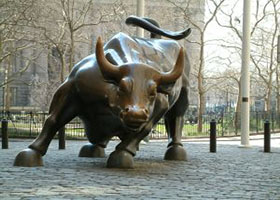


So what’s the problem? And what should we be measuring to truly gauge the link between economic fundamentals and stock market performance?
Some answers potentially–a new paper by scholars Rui Albuquerque, Martin Eichenbaum, and Sergio Rebelo identifies a key gap in standard asset pricing models that could account for the problem: the role of demand shocks.
According to the authors, “the correlation puzzle arises because these models load all uncertainty onto the supply side of the economy. We propose a simple theory of asset pricing in which demand shocks play a central role. These shocks give rise to valuation risk that allows the model to account for key asset pricing moments, such as the equity premium, the bond term premium, and the weak correlation between stock returns and fundamentals.”
So, instead of focusing on the role of supply, we need to look more closely at demand in order to really see the interplay between stock market performance and the economy.
You can download the full paper here.
